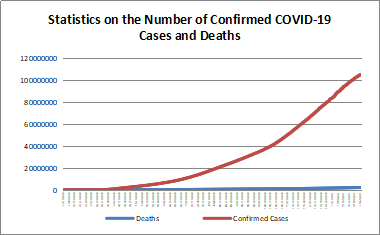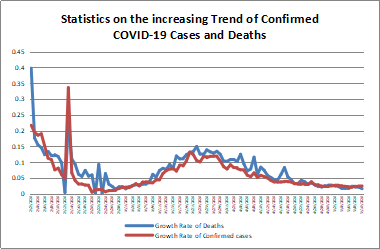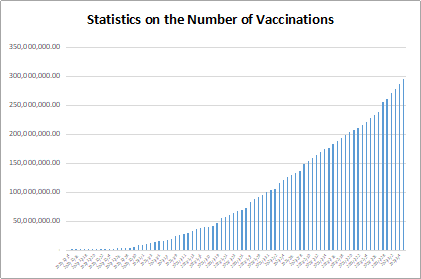The COVID-19 Has Not Slow Down Climate Change, and Achieving Green Growth Remains a Long Way off
Time:2021/09/30 BJT
1. Key Concerns
The World Meteorological Organization (WMO), the World Health Organization (WHO), United Nations Environment Programme (UNEP), Intergovernmental Panel on Climate Change (IPCC), Global Carbon Project (GCP) and other partner organizations have jointly released the United in Science 2021 report recently. According to the report, due to the restrictive measures for the COVID-19 pandemic and economic slowdown, there was a temporary reduction in carbon dioxide emissions in earlier 2020. However, the current data showed that global warming is continuing, and the goals of the Paris Agreement which is to limit global warming to well below 2℃, preferably to 1.5℃, compared to before the industrial revolution may off-schedule to meet.
The report warned that the rising global temperatures are fueling devastating extreme weather throughout the world with serious economic and social impacts. It is also noted that the concentrations of greenhouse gas continued to increase, and the global average surface temperature for the period from 2017-2021 is among the warmest on record. The Arctic average summer minimum and average winter maximum sea-ice extent were below the 1981-2010 long term average. Climate change induced by human activities has increased the frequency and intensity of global extreme weather and the rise of the global average sea levels has accelerated. Rising temperatures have led to the loss of global working hours and posed risks to human health, with an excess of 103 billion potential working hours lost globally in 2019 compared with those lost in 2000.
The Global Climate Change Conference will be held in Glasgow of the UK in November, and the UN calls upon all members to take concrete measures of limiting carbon emissions, effecting inclusive, and clean transitions, actively tackling the climate crisis and achieving sustainable development when they pursue economic recovery after the COVID-19 pandemic.
2. Briefing on COVID-19 Pandemic
According to WHO statistics, the cumulative numbers of confirmed COVID-19 cases and deaths have reached 229,373,963 and 4,705,111 as of September 22, 2021. The U.S., Brazil, India, the UK and Turkey were the five countries (regions) with the highest number of new confirmed cases in the past seven days. The U.S., Russia, Brazil, Mexico and Iran were the five countries (regions) with the highest number of new deaths in the past seven days.


https://covid19.who.int/
With the acceleration of the COVID-19 vaccination process, the UN focuses on a global COVID-19 vaccination plan. Statistics from Our World In Data, an online research site of the University of Oxford, presented that 6,008,412,990 doses of the COVID-19 vaccine had been administered as of September 20, 2021. Malaysian Prime Minister Ismail Sabri Yaakob announced on September 22 that the full vaccination rate for the adult population under the national Covid-19 immunisation program (PICK) stood at 80%. India will resume the COVID-19 vaccine exports to developing countries in October and it is working with other countries on the recognition of vaccine certificates at present. Speaking at a summit on the global pandemic on September 22, UN Secretary-General repeated his call for a global COVID-19 vaccination plan to ensure equitable distribution and boost production.

https://ourworldindata.org/covid-vaccinations
Many countries (regions) began to relax their restrictive measures on the pandemic. The U.S. announced that it will relax travel restrictions in November and reopen to air passengers from 33 countries including China, Brazil, India, the UK, and most of the EU who were fully vaccinated against COVID-19. In Sydney of Australia, some pandemic restrictive measures were relaxed on September 21 which included banning the time limit for outdoor activities and allowing an outdoor gathering of up to 5 people who have complete the vaccination. The Argentine government announced on September 21 that it will ease a wide range of restrictions, among which are the end of the use of outdoor masks, social gatherings without capacity limits, and gradual opening of the borders to allow the entry of residents and foreigners from November. Oman’s Supreme Committee on COVID-19 announced on September 19 the relaxation of some restrictive measures include reopening mosques, relaxing assembly restrictions, and abolishing the entering quarantine measures for people from Iraq and Iran.


